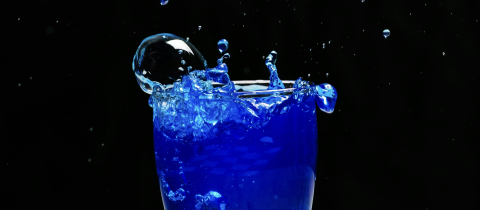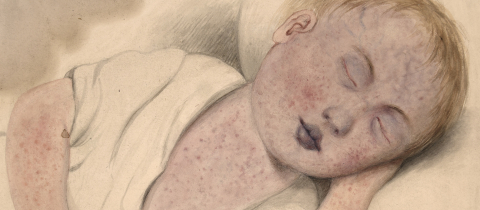I've often watched people do battle with the albedo, trying meticulously to remove every last vestige before popping a segment of "naked" orange into their mouth. Probably the same people who choose filtered orange juice over the pulpy variety. Too bad, because both the albedo and the pulp are good sources of pectin, a type of fiber that shows great nutritional promise.
Most people associate pectin with jams and jellies, not with cleaning out arteries, controlling blood sugar or preventing cancer. But it just may do all of these! Pectin is a kind of carbohydrate "glue" that helps hold plant cells together. It can be extracted with boiling water from apple cores or from citrus albedo and processed into a commercially available powder to thicken jams. In the presence of appropriate amounts of acid and sugar, the long pectin molecules bind to each other to form a three-dimensional lattice that traps water molecules. Some fruits, such as grapes and most berries have enough pectin to produce jams on their own, but apricots and strawberries, for example, need added pectin to achieve the proper consistency.
It is precisely this thickening ability that may be responsible for some of pectin's reported health benefits. Pectin is a form of fiber, meaning that our digestive tract cannot break it down and absorb it into the bloodstream. So it stays in the small intestine where, just like in jams, it can form a gel. This gel traps and eventually eliminates some of the bile acids which are secreted by the liver to aid fat digestion. The liver then has to make more bile acids to replace the lost ones. Since the raw material used for bile acid synthesis is cholesterol, the end result is a lowering of blood cholesterol. This is not just a theoretical possibility. Researchers at the University of Florida have already shown that citrus pectin can keep pig arteries free of plaque and may actually clear blocked arteries.
We cannot be sure that the same effect will be seen in humans, but it is likely. A number of studies have demonstrated that pectin can lower cholesterol by anywhere from 5 to 19%. This is in the same range as some cholesterol lowering medications. But how much pectin do we need to lower cholesterol appreciably? And in what form? The consensus of the studies is that about 15 grams are required if powdered pectin is used, but less if it is present as a food component.
When pectin is extracted from apples, for example, the effect on blood cholesterol is not as great as eating the apples themselves. In one study, the addition to the diet of two or three apples a day, each containing 2-3 grams of pectin, lowered the "bad" cholesterol in the blood by some 11%. But when this amount of pectin was used as an extract, the results were far less impressive. A likely explanation is that the apples also contain vitamin C, a vitamin that helps pectin reduce blood cholesterol since it is needed by the body to convert cholesterol to bile acids. This is another good example of how a whole food is more than just the sum of its parts and how supplements may not be the best way to consume nutrients. There are many good food sources of pectin. Grapefruit is great, especially if the albedo and the membranes that divide the segments are eaten. A couple of grapefruits a day can have a measurable cholesterol lowering effect. So can oranges, carrots, and soybeans!
Pectin can even regulate blood sugar, so that pectin containing foods are desirable for diabetics. Again, the effect is likely due to the enhanced viscosity of the intestinal contents due to the gelling ability of pectin. Sugars in the intestine diffuse more slowly through he thickened material and are therefore absorbed at a slower rate. Pectin may also slow the rate at which the stomach empties, again retarding the absorption of sugars from the intestine. And if all this weren't enough to send us scurrying for an extra dose of albedo, just muse over what researchers are discovering about the connection between pectin intake and that most dreaded of all diseases, cancer. Since pectin is indigestible, it eventually makes its way to the colon. Here it serves as food for the many bacterial species that inhabit our dark innards. We may not be able to digest pectin, but these creatures certainly can. Some of the products of this bacterial fermentation are compounds referred to as "short chain fatty acids." These acids, butyric and propionic being good examples, have been studied in tissue culture and were shown to be protective against colon tumors.
Even more exciting are studies carried out using something called "modified pectin." Treatment of pectin with an alkali then an acid results in soluble fragments which can be fed to test animals. Early results show that this type of pectin may prevent cancer cells from attacking normal cells and may therefore reduce the spread of the disease. More work of course needs to be done, but a cancer fighting pill based on pectin is certainly within the realm of possibility.
In the meantime, increasing our intake of foods that contain pectin is a good idea. Go for the juice with the pulp and eat a couple of apples and grapefruit every day. And stop struggling with the albedo on the orange or the banana. Remember that the stringy stuff just may have the right chemistry!







